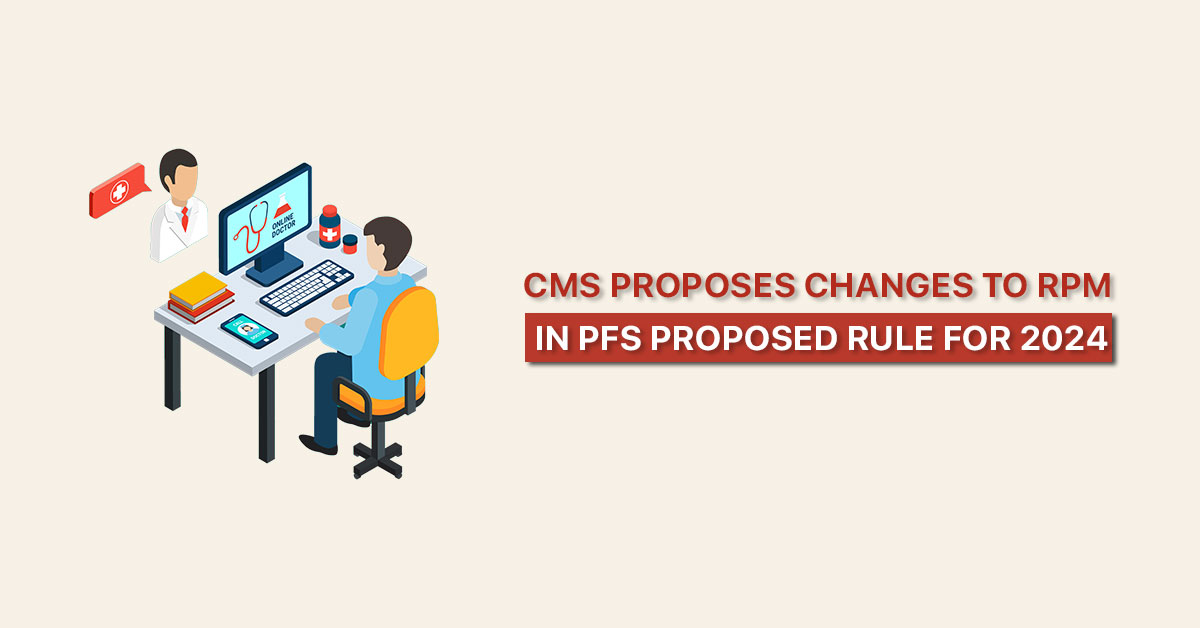CMS Proposes Changes to Remote Patient Monitoring in PFS Proposed Rule for 2024
The 2024 physician fee schedule (PFS) proposed rule has been released by the Centers for Medicare & Medicaid Services (CMS). Within this rule, remote physiologic monitoring (RPM), also known as remote patient monitoring, has garnered significant attention. While customary for a proposed rule, CMS has introduced several suggested modifications to RPM. However, what sets this apart is CMS’s distinctive approach in emphasizing RPM.
To provide you with a quick overview of CMS’s stance on RPM within the proposed rule, here are the main points to consider.
Simultaneous Billing for RPM and RTM
Under the proposed regulations, the Centers for Medicare & Medicaid Services (CMS) have put forth the notion that billing for either remote physiologic monitoring (RPM) or remote therapeutic monitoring (RTM) services is acceptable, but not both concurrently. CMS has reiterated the possibility of billing for RTM or RPM services in conjunction with care management services like chronic care management (CCM), transitional care management (TCM), principal care management (PCM), chronic pain management (CPM), and behavioral health integration (BHI) for the same patient. However, this billing must avoid duplicating time or effort in the process. The ability to offer and bill for RPM and CCM simultaneously holds significant benefits for patients, as the synergy of well-executed CCM enhances the efficacy of RPM. Similarly, providers also stand to gain as they can offer enhanced care and receive compensation for their services.
CMS emphasized that its reimbursement strategies concerning the interaction between care management and remote monitoring services are not set in stone. It has solicited input on practitioner experiences with various code sets and services that the agency intends to use for refining and elaborating these policies.
https://www.allzonems.com/2024-pfs-proposed-rule-for-remote-patient-monitoring/




Comments
Post a Comment